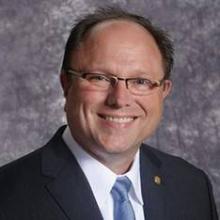A coalition of primary care physicians is calling on Congress to act quickly to extend higher Medicaid payments before federal funding runs out at the end of the year.
Medicaid pay parity, which pays physicians at Medicare rates for providing certain primary care services to Medicaid beneficiaries, is part of the Affordable Care Act. The federal government provided the funding for the pay increase in 2013 and 2014, but has yet to authorize a continuation of the program.
Without congressional intervention, primary care physicians in many parts of the country will see significant cuts to their Medicaid payments. On average, states pay only 59% of Medicare rates for the same primary care services when delivered under Medicaid.
The rollback could prompt physicians to limit the number of new Medicaid patients they see, creating access barriers, according to a coalition that includes pediatricians, family physicians, and internists.
“This could wipe out the progress of ensuring that low-income Americans have access to primary medical care,” Dr. Robert Wergin, president of the American Academy of Family Physicians, said in a statement. “We know from research that when Medicaid beneficiaries cannot find a physician who accepts new Medicaid patients, they face the same access problems as those who have no insurance. They are less likely to have a usual source of care, which contributes to unnecessary fragmentation and duplication of services.”
Just days before the midterm elections, physicians representing the American Academy of Pediatrics, the American Academy of Family Physicians, the American College of Physicians, and the American Osteopathic Association were knocking on doors on Capitol Hill urging lawmakers to support a 2-year extension of pay parity.
The groups support legislation from Sen. Patty Murray (D-Wash.) and Sen. Sherrod Brown (D-Ohio), which has been pending in Congress since July. The Ensuring Access to Primary Care for Women & Children Act (S. 2694) would continue Medicaid pay parity through 2016 and would increase the type of providers who are eligible for higher payments.
While physicians push for federal funding, some states are continuing the Medicaid pay bump, or some portion of it, on their own.
Fifteen states (Alaska, Alabama, Colorado, Connecticut, Delaware, Hawaii, Iowa, Maryland, Maine, Michigan, Mississippi, Nebraska, Nevada, New Mexico, and South Carolina) plan to continue some form of increased Medicaid reimbursement for primary care services in 2015, according to an analysis by the Kaiser Family Foundation.
Most of the states planning to fund the increased payments on their own already had higher-than-average Medicaid payment rates in place, with nine of the states paying physicians at least 76% of Medicare rates.
Some of the states will make changes to pay parity going forward. For instance, South Carolina officials plan to limit the increased payments to general pediatricians, general internal medicine physicians, general family medicine physicians, general obstetricians, and general psychiatrists. Michigan plans to fund only half of the value of the increased payments, according to the Kaiser report.
Of the remaining states, 24 reported that they would not continue the Medicaid pay parity after federal funding runs out at the end of 2014. The other 12 states were undecided.
mschneider@frontlinemedcom.com
On Twitter @maryellenny


